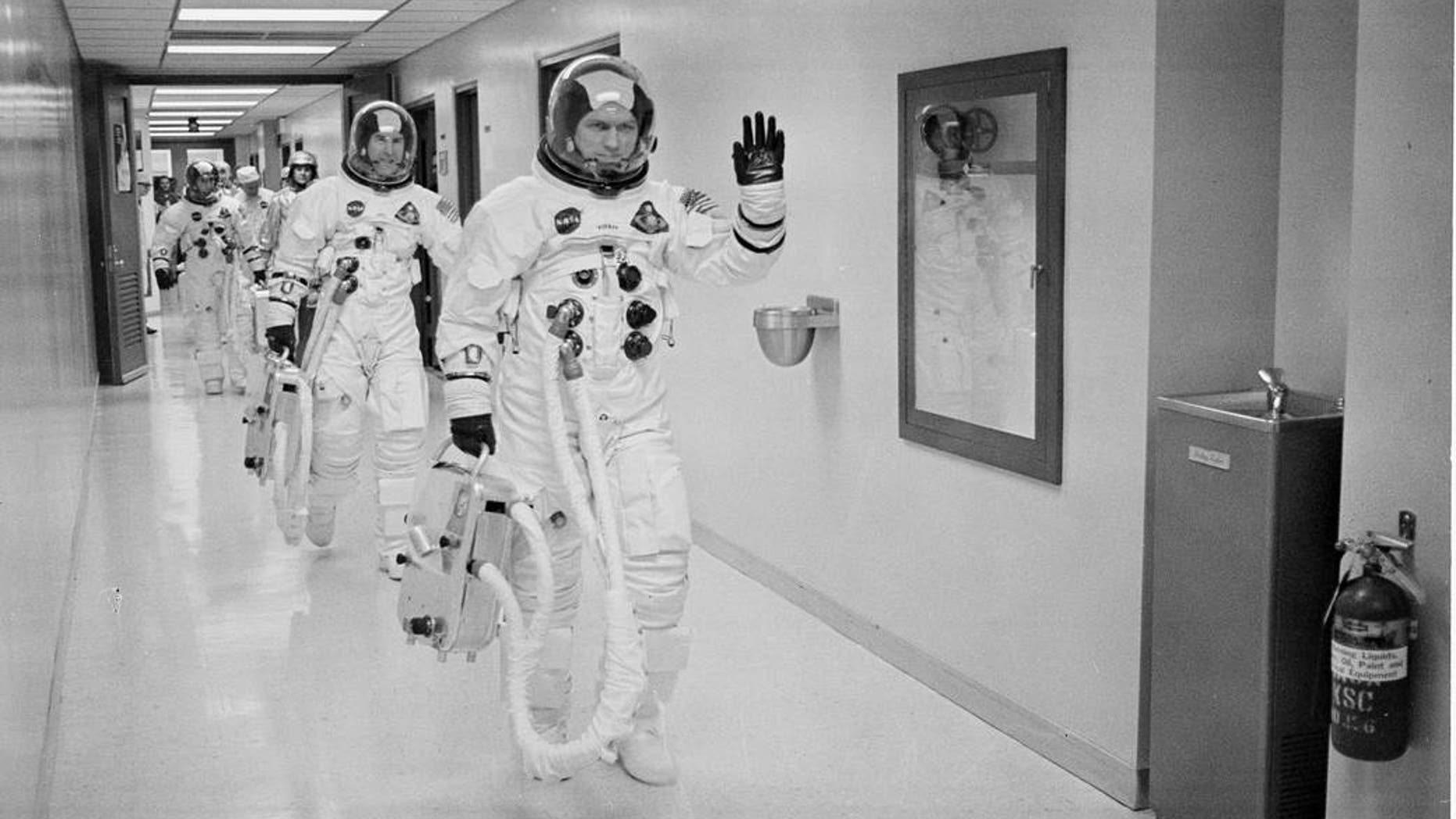
Apollo 8 Commander Colonel Frank Borman leads the way as he, Command Module Pilot Captain Jim Lovell, and Lunar Module Pilot Major Bill Anders head to the launch pad for humanity’s maiden voyage around the moon and its first aboard the Saturn V vehicle.
(NASA)
On July 20, 1969, NASA astronaut Frank Borman watched with President Nixon in the White House as his colleague Neil Armstrong took his historic first steps on the Moon.
“I was assigned by NASA to be the liaison with the White House,” he told Fox News during a phone interview. “I was watching on TV with President Nixon.”
The Apollo 8 and Gemini 7 astronaut said that the atmosphere in the White House was probably no different to the millions of homes across the U.S. where families were glued to their TVs.
'THERE WAS A BIT OF TENSION': ASTRONAUT DESCRIBES WATCHING MOON LANDING WITH BUZZ ALDRIN’S FAMILY
“Everyone was hoping for the best,” he said.
President Nixon was “very excited and very happy,” watching the lunar landing, according to Borman. “He was happy on two fronts – one for his presidency and one for the crew,” he added.
Borman was also present in the White House when Nixon called the Neil Armstrong and Buzz Aldrin on the Moon. The President described the call as the most historic telephone call ever made from the White House.
APOLLO 8 ASTRONAUTS RECOUNT NASA'S EPIC FIRST MISSION TO THE MOON
The former Air Force pilot was also involved in preparing a speech that Nixon would have used if Armstrong and Aldrin were unable to leave the Moon. The statement, which was never delivered, was written by Presidential speechwriter William Safire, according to Space.com.
“I was involved in, shall we say, editing it,” Borman told Fox News.
Borman’s fellow Apollo 8 astronaut Jim Lovell was Neil Armstrong’s backup for the Moon mission. “I was in the Launch Control Center during the flight,” he told Fox News.
TO THE MOON AND BACK: APOLLO 11 LUNAR CHECKLIST SOLD AT AUCTION
There was a particularly anxious moment when the lunar module was running low on fuel. “Neil did a very good job – we thought that he was nearly out of gas when he landed!” said Lovell.
Best known as the commander of the ill-fated Apollo 13 mission, Lovell recalls the celebrations when the module successfully reached the lunar surface. The mission, however, wasn’t over until the Apollo 11 command module carrying Amstrong, Aldrin and Michael Collins splashed down in the Pacific Ocean on July 24, 1969.
“The final celebration was the collection of the crew when they were picked up from the water by the Navy,” he told Fox News.
Follow James Rogers on Twitter @jamesjrogers
Source: Read Full Article